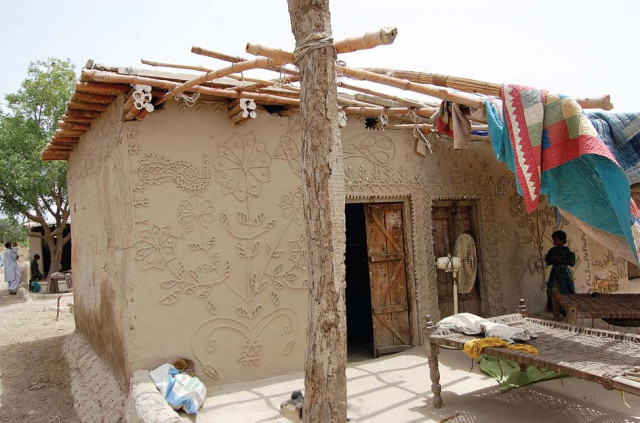Financial institution needed for villages: experts
Disparities between urban, rural lifestyle part of political neglect, says author

PHOTO: NASEEM AHMAD
There is a need for bottom-up reforms and a new formal institution at the grass-roots level, as top down centralised model of the state has already failed to address challenges of the villagers. People are in dire need of a new participatory institution of the state at a local level to reduce the power and influence of the local political elite.
Investing in zero hunger in Pakistan
Speakers expressed these views at the book launching ceremony titled ‘Transforming Villages: How grassroots democracy can end rural poverty at a rapid pace’ by Javed Ahmed Malik, organised by Sustainable Development Policy Institute (SDPI) on Monday.
Author of the book Javed Ahmed Malik said that the disparities between urban and rural lifestyles and development trajectories are not accidental. He said that it is part of serious political neglect and an urban bias in the development policies. It is not just the previous government but successive governments that have ruled the country that are responsible for the appalling state of rural livelihood. He said that poverty and deplorable living standards are essentially a rural phenomenon. There are millions of people in Pakistan who are below poverty line, whereas, around 71 million of them live in rural areas as per the recent planning ministry’s survey, he added.
“We should form village level institutions, as an extension of executive branch of the state, with legal structure and fiscally empower. This model at the community and village level can be an answer to the miseries of the villages,” said Javed Ahmed. He said that the state is not really relevant at the village level. There is no efficient and effective public service available in the rural areas as compared to the urban areas, he added.
Ignoring poverty
National Rural Support Program (NRSP) Chief Executive Officer Dr Rashid Bajwa said one has to take risks to create change and transformation. He said that the only hindrance in taking this country to the next level of development is our policymakers. NRSP is a model of social enterprise, which is the largest social enterprise in the country, creating a positive impact in the society.
Economist and Social Scientist Safiya Aftab said that the book is a good addition with different perspective in the realm of rural development. She said that the book introduced a new idea on political organisation and to identify an innovative approach to tackle Pakistan’s rural problems.
Published in The Express Tribune, October 16th, 2018.



















COMMENTS
Comments are moderated and generally will be posted if they are on-topic and not abusive.
For more information, please see our Comments FAQ